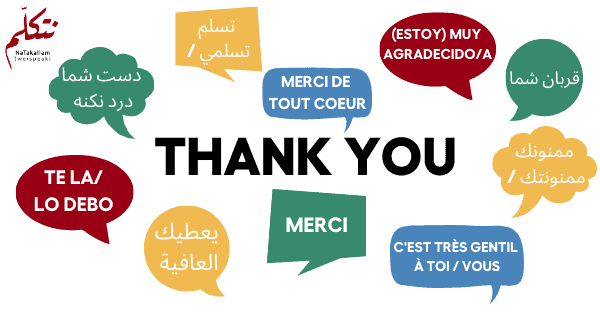3 Reasons Why The Gift of Language Is The Ultimate Gift
On a quest for a meaningful gift for a loved one? Look no further. Online language lessons are the ultimate gift for a culture aficionado or a perennially curious language enthusiast in your life. Perfect for birthdays, holidays, and special occasions.
Plus, it’s shipping-free, impact-driven and starts at only US$25.
1. IT NOURISHES YOUR MIND
Learning a language physically changes your mind – making one a stronger, more creative thinker. A study at the University of Edinburgh demonstrated that young adults proficient in two languages performed better on attention tests and had better concentration than those who spoke only one language. The study also showed that adults who had become bilingual later in life performed better than those who had not – exhibiting more robust general intelligence and thinking abilities.
Learning a new language can make you a better listener. A study at Northwestern University found that bilinguals are better at juggling linguistic input, instinctively paying more attention to relevant sounds and ignoring irrelevant ones – making them more effective in challenging or novel listening conditions.
Language learning is essentially a workout for your mind. It challenges it in order to keep it sharp and cognizant. It mustn’t be surprising then that language learning is an effective therapy to help delay the onset of neurological disorders such as Alzheimer’s.
2. IT NOURISHES YOUR SOUL
Learning a new language provides an avenue to explore new and exciting cultures that ignites the soul! It helps one to interact with people from around the world and acquaint oneself with their experiences. This can help broaden one’s perspective in ways that many other educational experiences cannot. Dan Roitman points out that ‘‘as a language learner, you’ll not only become a more conscious thinker and listener who can communicate clearly and think creatively, but you’ll also gain the most significant benefit of multilingualism: a broader, more global perspective.’’
Learning a new language can also help transcend political, geographical and cultural boundaries. It encourages one to try to comprehend experiences that are remote from their own, develop a sense of empathy and work towards the common good, and go beyond headline narratives. The people, stories, and experiences that a new language brings you truly has the potential to nourish your soul!
3. IT NOURISHES YOUR HEART
When you learn a new language on platforms such as NaTakallam, you not only nourish your mind and soul but also your heart! NaTakallam leverages the freelance digital economy to provide income to refugees, displaced persons and their host communities by hiring them as online tutors, teachers, translators and cultural exchange partners, regardless of their location and status. Learning a new language with NaTakallam allows one to connect to local cultures, initiate cross-border friendships and have a holistic language-learning experience that’s good for your mind, soul and heart!
Give your loved one a unique language-learning experience with NaTakallam’s Gift of Language and Conversation. Available in Arabic, Armenian, English, French, Kurdish, Persian, Spanish, and suitable for all ages and levels.
What’s more? NaTakallam’s language sessions take place virtually from the comforts of home and make the perfect last-minute (yet meaningful) gift that requires no shipping. Gift a language, surprise a loved one, change a life.
3 Reasons Why The Gift of Language Is The Ultimate Gift Read More »







